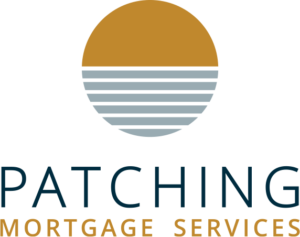Even if you are the most organized and detail oriented first-time homebuyer you can still overlook some unexpected costs that are a part of the purchase of a new home. I’ve highlighted four of the costs that I most commonly hear by FTHB’s with the goal of preparing you when it’s your turn to buy.
1. Closing Costs
Well done! You’ve received an accepted offer on your first home. As you approach your completion date you’ll sit down with a Notary/Solicitor/Lawyer to make it official. At the meeting their will be costs associated with your purchase. They may include:
- Title Insurance
- Taxes such as Land Transfer, and Property tax
- Legal/notary fees
- Inspection/appraisal fees
I’d suggest setting aside 1.5% of the purchase price to cover the closing costs above. If you want to be diligent and proactive, let’s chat and I can give you a breakdown of each cost to expect given your exact purchase details.
2. Utility Bills
It’s amazing how much more water, heat, and energy you consume once you make the change to a larger space such as a detached home or a townhouse. No need to be surprised when you receive an email from BC Hydro, and your payment has doubled. In some cases, you’ve never even paid a utility bill as your landlord pays it, (well, not really, he’s just included that cost into your monthly rent) and therefore it’s a whole new monthly payment you are not used to. I suggest speaking with someone close to you that lives in your area and ask them what they pay. This way you’ll have a rough estimate of what to expect.
3. Renovations and Updates
Not all purchases a pre-sales, and therefore at some point in time you are going to want/or need to renovate or update your property. Unfortunately, theirs no longer a landlord you can call to do this…. you’re the Landlord. Therefore, put some money aside for when these times arise. A part of the home purchase process is hiring a home inspector to look over your purchase and highlight what should and needs to be fixed. Save his or her report so you have something to reference, and overtime chip away at.
When it comes to a pre-sale their will be a “walk through” appointment with the developer. Bring a roll(s) of green painters’ tape, and make notes of any imperfections you see, and that need to be fixed prior to your move in date. Be aggressive and remember you purchased a “new” home, and you deserve it.
4. Constant upkeep
Something always needs to be fixed. Examples include:
- Plumber and Electrical
- Roof repair/maintenance
- Gutter cleaning
- Furnace cleaning
- HVAC and Duct cleaning
- Drywall repair
- Painting
Every home is differs in regards to how much one should budget each year for regular upkeep. It depends on the age of your home, space, climate in your region, and overall shape of your home.
Property ownership shouldn’t be restricted by $$$ caused by lack of preparation. All of these costs, plus others are simple to plan ahead for, and one should ensure they’ve got a budget set aside in order to stay on track. A rule of thumb – your housing costs including mortgage payment should not exceed 39% of your monthly income. Treat this number as a reference when you’re budgeting. It will give you peace of mind on the long run and allow you to actually enjoy your new home.
As always, reach out to me if you have any questions, comments or concerns.

